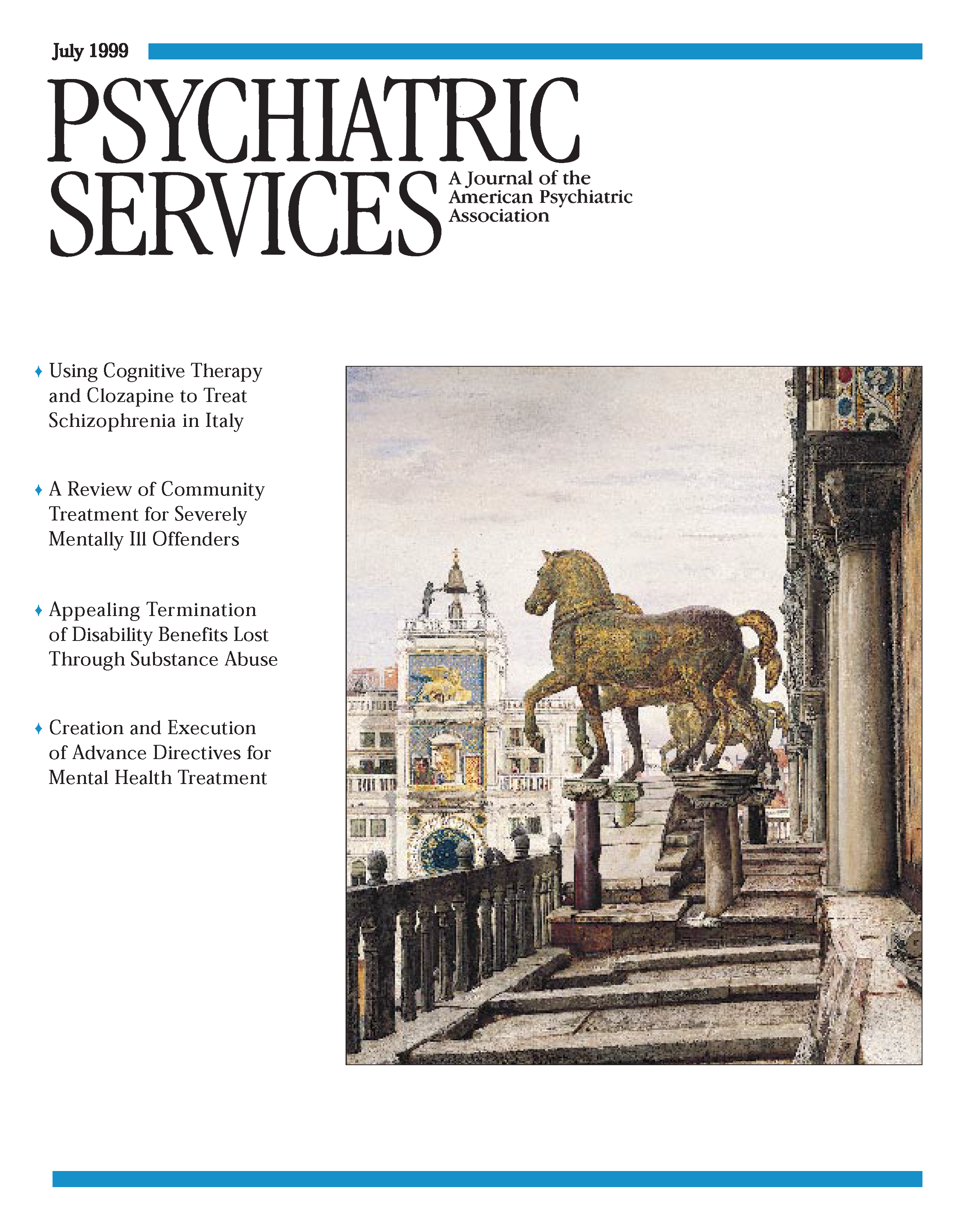A Randomized Controlled Study of Two Styles of Group Patient Education About Schizophrenia
Abstract
OBJECTIVE: The therapeutic specificity of patient education about schizophrenia was investigated in a randomized controlled study comparing the effects of two styles of group educational intervention. METHODS: Thirty-three adult inpatients with schizophrenia were assigned in a stratified random manner either to an experimental patient education group that used a didactic format to cover a range of topics on the characteristics and treatment of schizophrenia (N=16) or to a control group in which participants discussed their subjective experiences with schizophrenia and its treatment (N=17). Before and after the group interventions, participants responded to measures of knowledge about schizophrenia, insight into illness, and cognitions about medication intake. RESULTS: The two groups did not differ significantly in postintervention scores on measures. CONCLUSIONS: The benefits of patient education may not be due to specific active therapeutic educational ingredients but may be due instead to the presence of nonspecific treatment effects.



